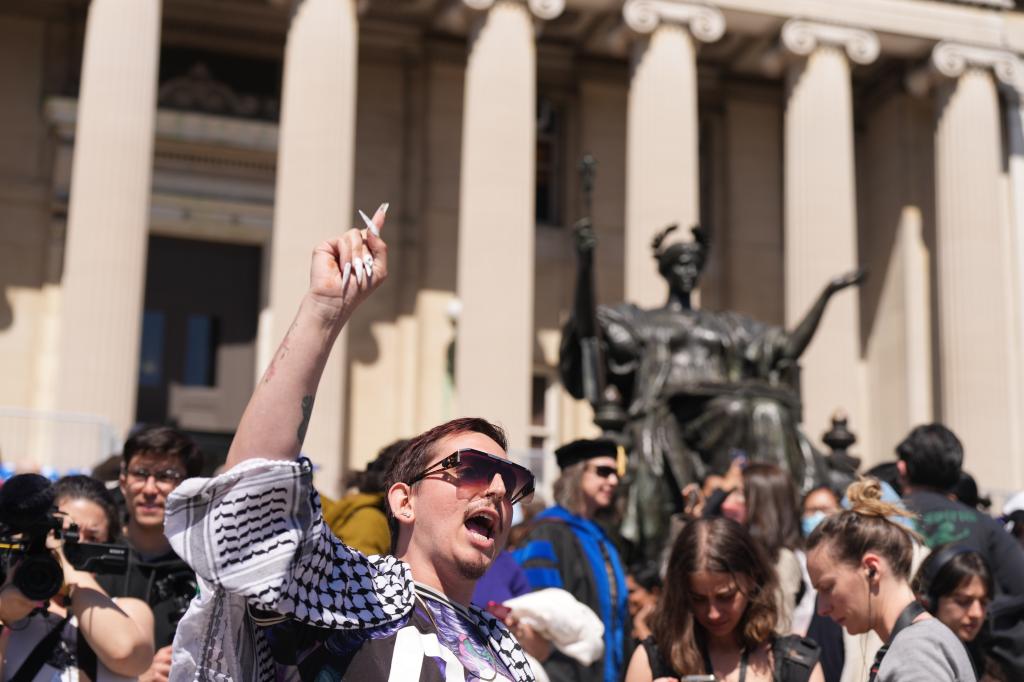The Gen Z pro-Palestine protesters, many of whom are Ivy League students, are often ignorant about the conflict they are protesting. Many protesters lack knowledge of the details surrounding the Israel-Palestine conflict and are influenced by indoctrination and social media trends. Despite the complexity of international politics, these young protesters have appointed themselves as experts without a comprehensive understanding of the issues at hand.
Many of the pro-Palestine protesters are unaware of the implications of their chants and actions. Some students at Columbia University have shown support for the Palestinian cause without fully understanding the context or history of the conflict. This lack of knowledge is evident in the incorrect responses given by students when questioned about the significance of certain phrases related to the conflict.
The demonstrations by pro-Palestine protesters at Ivy League universities often lack substance and true activism. Students are seen setting up expensive branded tents, wearing designer clothes paired with keffiyehs, and engaging in activities like interpretive dance. These actions can be seen as a shallow attempt to gain social media attention and likes rather than a genuine fight for justice.
Some of the protesters, particularly those at NYU, have expressed troubling views supporting violence and denying the legitimacy of Israel. There are instances where protesters justify violent attacks and express extremist views. These radical beliefs are a result of the indoctrination and misinformation that many young people have been exposed to through their education and social media consumption.
The oversimplification of the Israel-Palestine conflict by radical professors and the lack of critical thinking skills among young people contribute to the misinformation and ignorance surrounding the issue. Many Gen Z individuals have been taught to view the conflict in terms of oppressor versus oppressed without considering the complexities and nuances involved. This one-sided narrative leaves little room for understanding the root causes and potential solutions to the conflict.
The reliance on social media platforms like TikTok for news and information also contributes to the misunderstandings and misinformation among young people. The lack of fact-checking and critical thinking skills, coupled with the influence of social media trends, creates a generation that is activated but not necessarily educated on important global issues. The wake-up call from the recent conflict in Israel highlights the need for improved education and media literacy among young people to foster a more informed and nuanced understanding of complex issues like the Israel-Palestine conflict.


